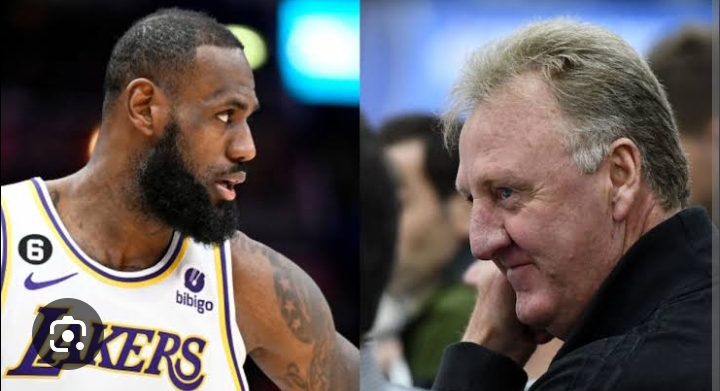LeBron James Calls Out Larry Bird and Other NBA Legends for Not Giving Him Enough Respect Because He is Black

In a recent, emotionally charged statement, LeBron James has brought to light a contentious issue that has long simmered in the world of professional basketball. James has accused NBA legends, including Larry Bird, of not giving him the respect he deserves due to racial biases. This bold claim has sparked significant debate within the sports community and beyond.
LeBron, one of the most celebrated and scrutinized athletes of his generation, has consistently faced criticism despite his numerous achievements. With four NBA championships, multiple MVP awards, and countless records to his name, James’ career is nothing short of legendary. Yet, he feels that the recognition from some of his predecessors, especially white NBA legends like Larry Bird, has been lacking, and he attributes this to racial bias.
During an interview, LeBron addressed the issue head-on. “I’ve noticed that some of the older generation, the legends of the game, don’t give me the respect I’ve earned,” he said. “It feels like no matter what I do, there’s always this undercurrent of doubt and dismissal. And honestly, I think a lot of it comes down to race. I’m a black man in America achieving things that historically, black men weren’t allowed to achieve, and that makes some people uncomfortable.”
LeBron’s comments have opened up a broader conversation about race and recognition in sports. The issue of racial bias is not new, but having a high-profile figure like James speak out has given the topic renewed attention. His accusation is not just about personal grievances but touches on the systemic issues that affect how athletes are perceived and remembered.
Larry Bird, known for his competitive nature and storied career with the Boston Celtics, has always been respected for his contributions to the game. However, Bird and other legends have sometimes been seen as part of an old guard that can be resistant to change or reluctant to fully acknowledge the achievements of newer players, particularly those from different racial backgrounds.
LeBron’s assertion that he is not given due respect because of his race is a powerful statement that challenges the NBA community to reflect on its biases. The sports world, much like society at large, has a complex history with race. African American athletes have long had to fight for recognition and equality, both on and off the court. LeBron’s comments serve as a reminder that this struggle continues, even at the highest levels of success.

The reaction to LeBron’s statement has been mixed. Many fans and fellow athletes have rallied in support, applauding him for his courage to speak out against perceived injustices. “LeBron has done more than enough to earn the respect of every player, past and present,” tweeted one fan. “If he feels that racial bias is at play, we need to listen and address it.”
Others, however, have taken a more critical stance. Some argue that respect is earned through performance and demeanor, not given based on race. They suggest that any perceived lack of respect might be due to differences in playing style, personality, or generational perspectives rather than racial bias.
In the wake of his comments, there have been calls for open dialogue between the current generation of players and the legends of the game. Many believe that such conversations could help bridge gaps in understanding and foster a more inclusive appreciation of the sport’s history and its evolving dynamics.
In conclusion, LeBron James’ recent remarks about not receiving enough respect from NBA legends due to racial biases have ignited a vital conversation about race, recognition, and the complexities of legacy in professional sports. While the debate is far from settled, LeBron’s courage in addressing these issues highlights the ongoing challenges that African American athletes face. It also underscores the need for continued progress towards equality and respect for all players, regardless of their background. As the basketball community grapples with these important topics, the hope is that it leads to greater understanding and a more inclusive environment for future generations.



